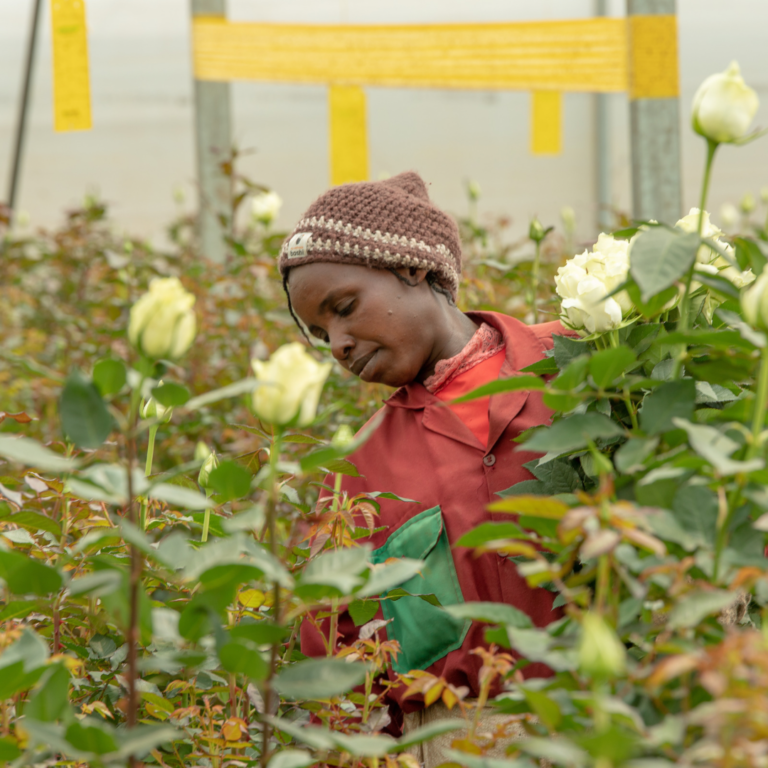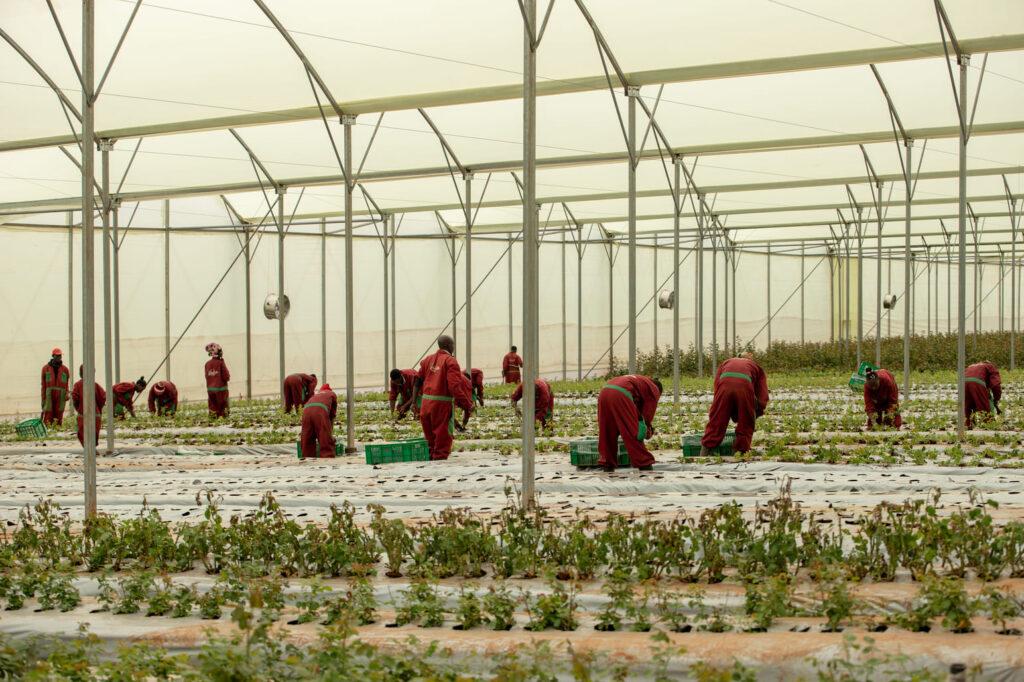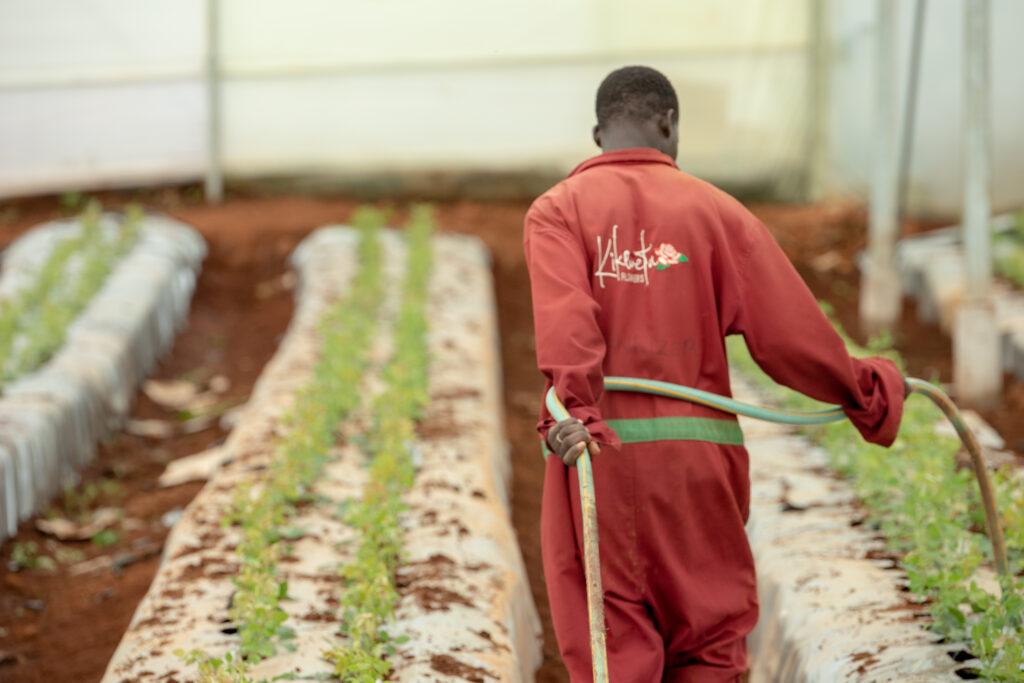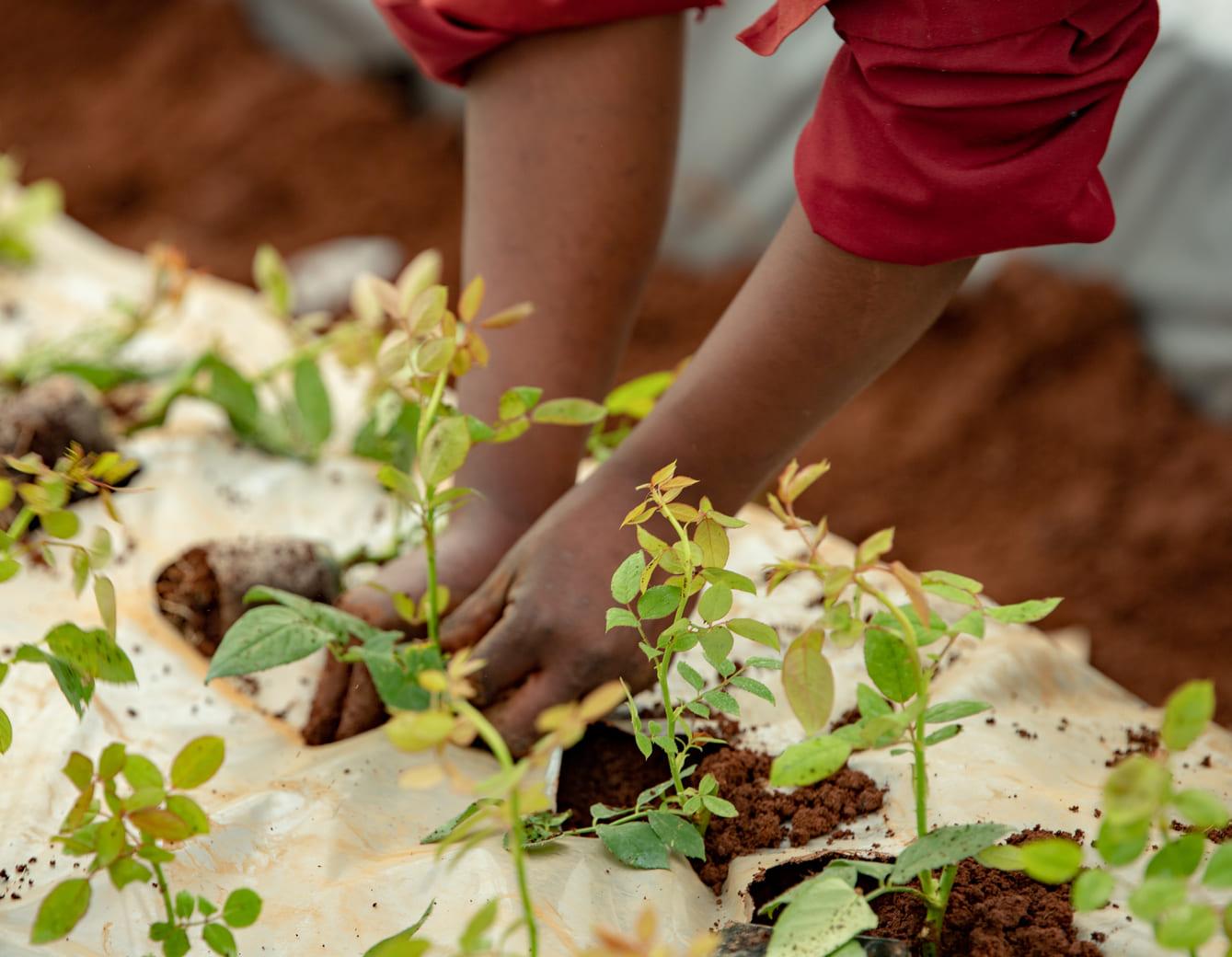In the picturesque region of Timau, Meru, Kenya, nestled between the rolling hills and fertile lands, lies Kikwetu Flowers—a farm that has not only mastered the art of growing exquisite roses but also cultivated a deep-rooted commitment to community empowerment. At Kikwetu, sustainability is more than just a buzzword; it’s a way of life. Through their innovative practices and unwavering dedication, Kikwetu is transforming the lives of local communities while fostering a sustainable future.

A Commitment to People and Place
At the heart of Kikwetu Flowers is the belief that true sustainability goes beyond environmental practices—it extends to the people who make it all possible. From the very beginning, Kikwetu has placed a strong emphasis on uplifting the local community, creating jobs, and providing opportunities for growth and development. This approach not only enhances the well-being of individuals but also strengthens the entire community, creating a ripple effect of positive change.
Creating Jobs and Building Skills
One of the most impactful ways Kikwetu empowers the community is through job creation. The farm provides stable employment to many local residents, offering them a reliable source of income and a sense of purpose. But Kikwetu’s commitment doesn’t stop there. The farm also invests in skill-building programs, training workers in various aspects of flower farming, from planting and harvesting to packaging and logistics.
These initiatives ensure that employees are equipped with valuable skills that can be used beyond the farm, opening doors to further opportunities and economic independence. By fostering a culture of continuous learning and development, Kikwetu is helping individuals build a better future for themselves and their families.

Supporting Local Economies
Kikwetu’s impact on the community extends beyond its own workforce. By sourcing materials and services locally whenever possible, Kikwetu supports the broader local economy. This practice helps sustain small businesses, fosters local entrepreneurship, and ensures that the economic benefits of flower farming are shared across the community.
Additionally, Kikwetu’s commitment to fair wages and ethical labor practices means that employees are not only able to meet their basic needs but also invest in their future. This approach creates a more resilient community, where individuals have the financial stability to weather challenges and seize new opportunities.
Sustainability at the Core
While empowering the community, Kikwetu remains deeply committed to environmental sustainability. The farm employs innovative practices, such as solar energy and water recycling, to reduce its environmental footprint. These efforts ensure that the farm’s operations are in harmony with the natural world, preserving the land for future generations.
For example, Kikwetu’s use of solar energy not only reduces reliance on non-renewable resources but also demonstrates how sustainable practices can be integrated into daily operations. Similarly, the farm’s water recycling initiatives, including the use of dams to capture and reuse rainwater, significantly reduce the need for borehole water, conserving vital natural resources.

A Model for Sustainable Growth
Kikwetu Flowers is more than just a farm; it’s a model for how businesses can drive sustainable growth while empowering the communities they serve. By prioritizing both people and the planet, Kikwetu is proving that sustainability and profitability can go hand in hand.
Through its commitment to community empowerment, Kikwetu is not only growing beautiful roses but also nurturing a thriving, sustainable community. The farm’s approach serves as an inspiration for other businesses, showing that with a focus on people, place, and purpose, we can create a brighter, more sustainable future for all.
In the fields of Timau, as the roses bloom and reach towards the sky, so too does the community, empowered by the opportunities and hope that Kikwetu Flowers provides. This is the Kikwetu story—a story of growth, empowerment, and a future rooted in sustainability.


